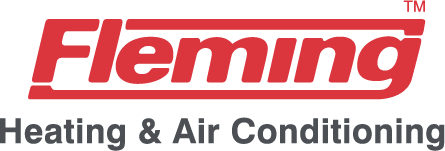Completing the search for your first home is an exhilarating experience. You’re likely juggling a dozen things or more to ensure you’re making the right choice. We believe that understanding your future HVAC system is essential. The property’s HVAC system represents a significant investment and potential source of long-term costs, illustrating why a detailed inspection should be a top priority for first-time homebuyers.
In this guide, we’ll outline seven tips for discovering all there is to know about a home’s heating and cooling system. And if you want a deeper opinion from the experts, feel free to call Fleming Heating & Air Conditioning Inc. Our staff can weigh in on your options with industry insights that are second to none.
1. What Type of HVAC System Is It?
Start by identifying what kind of HVAC system the home includes. Furnaces tend to last longer compared to air conditioners, and relatively new types of HVAC equipment like heat pumps boast average life spans that are impressively long. Knowing the make and specific model gives you a clear understanding of how much maintenance it will require.
2. How Old Is the Current HVAC System?
It also helps to learn how old the HVAC system is when you’re considering a new home. For the most part, HVAC systems should survive for around 10-12 years. Learning its approximate installation date helps you anticipate future maintenance needs or when it might break down. Older systems may be more vulnerable to problems, so budgeting for a replacement unit might be needed faster than expected.
3. Does the System Have a Warranty?
Check if the HVAC system is still under warranty. If it is, this can lighten the load for maintenance expenses. HVAC warranties typically include parts and labor, but it’s important to note that details will vary. Don’t forget to look into any terms that seem confusing to ensure you understand your coverage and any possible out-of-pocket costs.
4. Has the System Ever Been Professionally Serviced or Maintained?
Take a close look at the maintenance history of the HVAC system, if that information is accessible. This service history can reveal if the repair needs are high or how often a tune-up was scheduled. Ask about records for key tasks like filter changes, which means it enjoyed more regularly scheduled tune-ups.
5. What Are the Energy Efficiency Ratings?
Purchasing a home with a heating and cooling system with strong energy efficiency can lead to more manageable utility bills and a smaller environmental impact. Try and find the seasonal energy efficiency ratio (SEER) ratings for air conditioning as well as the annual fuel utilization efficiency (AFUE) for furnaces. The higher the SEER rating, the more efficient the cooling over the whole season, while higher AFUE ratings illustrate that the fuel is more effectively burned for useable heat.
6. Can You Spot Trouble After Your Own Inspection?
Even without heating and cooling expertise, you can still take a moment to examine the HVAC system yourself. Look for potential issues that might have been overlooked. This can mean bizarre noises, unequal airflow and attempts to cover up any serious damage.
7. Have You Sought Out Expert Advice?
If you’re still hesitant to make an offer because of the condition of the HVAC system, it’s beneficial to get a professional opinion from certified HVAC technicians. They will be much more likely to catch things you might not, such as leaks in the refrigerant, wiring issues or damaged ductwork.
A Call with Fleming Heating & Air Conditioning Inc Helps Take the Stress Out of Your Home-Buying Journey
Finding your first home ought to be exciting, and Fleming Heating & Air Conditioning Inc wants to ensure it stays that way. Reach out with us at 877-389-2465. We can go over the details about how our HVAC services help make this process smoother, giving you what you need to step into your new home with confidence.


